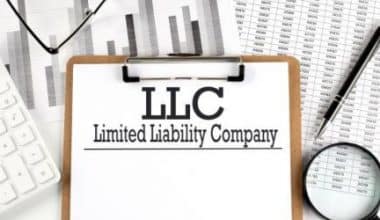When starting a business, one of the decisions you’ll need to make is whether to incorporate your company. Business incorporation is a legal process that transforms your business into a separate legal entity distinct from its owners. It offers several benefits, including liability protection and tax advantages. Let’s explore what business incorporation means, how it works, and the benefits it offers.
Business Incorporation
Business incorporation is a legal process to form a corporate entity or company that separates the firm’s assets and income from its owners and investors. A new business can only run as a limited company once incorporated.
Incorporation involves writing up a document known as the Articles of Incorporation and enumerating the firm’s shareholders. The chosen name should be followed with a corporate identifier such as “Corp.” “Inc.” or “Co.” and a preliminary name availability search is advisable before the submission of the Articles of Incorporation.
Benefits of Incorporating a Business
Incorporating a business offers many benefits, which include the following:
- Personal asset protection: An incorporated business creates a legal distinction between the business and the business owner, protecting the owner’s assets from the company’s debts and legal obligations.
- Limited liability: Incorporated businesses can take risks that make growth possible without exposing the shareholders, owners, and directors to personal financial liability outside of their original investments in the company.
- Tax benefits: Incorporated businesses often receive more lenient tax restrictions on loss carryforwards and may receive more favourable tax treatment for allowable deductions.
- Ability to issue and trade shares: Incorporating a business allows the owner to sell an ownership stake in part of the business, making it easier to raise capital.
- Easier to sell: Incorporated companies tend to be preferred by investors and buyers because their accounts are of a higher standard.
- Easy transfer of ownership: An incorporated business can issue and trade shares, making it easy to transfer ownership to another party.
- Credibility: Incorporating can provide credibility for a business, making it more trustworthy or legitimate.
The Drawback of Incorporating a Business
The primary drawback of an incorporated business is the operating constraints required to maintain its incorporated status. Companies must adhere to their bylaws and meet filing, reporting, and other ongoing requirements.
The drawbacks of incorporating a business include the following:
- Higher costs: There are higher costs involved in starting and maintaining a company than starting a business as a sole proprietor.
- Ongoing administrative burden: The ongoing administrative costs of a company are typically higher than a sole proprietorship, with higher costs for legal and tax filings.
- Losses more difficult to use: If a corporate business sustains financial losses, it can be more difficult to use them against future income.
- Pay more taxes: In some scenarios, operating a business through a corporation could mean paying more taxes.
- Time and effort involved: Incorporation can be a time-consuming process, and there are several administrative tasks around being incorporated, such as bookkeeping, that require effort.
Business Incorporation Delaware
Due to the state’s business-friendly laws and services, business incorporation in Delaware has become a popular option for many companies. Delaware offers a complete package of incorporation services, including modern and flexible corporate laws, a highly-respected Judiciary and legal community, and a business-friendly government. Also, you can file for business incorporation in Delaware online or in person.
Some benefits of business incorporation in Delaware:
- Tax benefits: Delaware doesn’t impose income tax on corporations registered in the state that don’t do business there. Shareholders who don’t reside in Delaware don’t need to pay tax on shares in the state. This makes Delaware a tax haven, which is attractive to any business going for incorporation.
- Corporation court: Delaware has a Court of Chancery that handles only corporation cases. The judges are experts in corporate law, and the decisions from the court tend to be more predictable than those in other states. This is attractive to businesses that want to ensure their cases will be handled efficiently and effectively.
- Quick filings: Delaware processes filings for business incorporation on the same day, making it corporation-friendly.
- Privacy protection: When you file for business incorporation in Delaware, you don’t need to disclose your directors’ and officers’ names to the state, allowing anonymity. This is beneficial for businesses that want to keep their information private.
- No residency requirements: Officers, directors, and shareholders don’t need to be residents of Delaware, which makes it easier for businesses to operate remotely.
California Business Incorporation
California business incorporation laws govern the establishment of a corporation within the state. For business incorporation in California, you must follow specific steps and comply with the California Secretary of State’s requirements and other relevant authorities.
To incorporate your business in California, you must file articles of incorporation with the California Secretary of State’s office. Then, within 90 days after filing the articles of incorporation, you must file a “Statement of Information” with the California Secretary of State.
Business Incorporation in Florida
The Florida Business Corporation Act sets the rules for business incorporation in Florida. Filing for business incorporation in Florida means the general corporation laws of Florida will govern your corporation.
When filing for business incorporation in Florida, the first step is to check if the desired business name is available. The application will be denied if another company has already taken a name. Then, file the articles of incorporation with the secretary of state. You can also file for business incorporation online, in person, or by mail with the Florida Department of State.
Business incorporation in Florida has many benefits, some of which are:
- Tax advantages: business incorporation in Florida provides many tax advantages where business expenses are more readily deductible.
- Low fees and minimal record keeping: The yearly fees and incorporation fees in Florida are low, ranging from $70 to $120, depending on the type of corporate structure chosen.
- Business-friendly environment: Florida has developed a business-friendly environment for companies to grow fast, so it is the right choice for business incorporation.
- Flexible business laws: Florida business laws are flexible, making it easy for LLCs and corporations to exist and perform well in the state. This flexibility makes Florida a good choice for business incorporation.
- Tax benefits for “S” corporations: “S” corporations in Florida are exempt from the 5.5% corporation tax, providing great tax benefits to business owners.
Online Business Incorporation
Business incorporation online involves several steps and requires access to the necessary information and forms. The process can be done through the appropriate state agency or online business incorporation services. Online services can simplify the process by providing fill-in-the-blank forms, preparing and filing registration forms, and offering additional services such as checking name availability, preparing by-laws, and obtaining a federal tax identification number.
When choosing an online business incorporation service, consider the following factors:
- Ease of use: Ensure the service makes it easy for users to complete important processes and stay organised.
- Customer satisfaction: Check public-facing customer reviews to understand the company’s online incorporation service.
- Pricing: Compare the cost of the service and any additional services offered. Some services may offer a satisfaction guarantee.
Many online incorporation providers offer extra services such as business planning and legal help. While these features can be tempting, they may increase the cost and could be obtained for free.
Cost of Online Business Incorporation
Incorporation services offer different packages, ranging from $200 to $1,000, excluding the filing fees charged by the state. These fees typically cover the preparation of resolutions of the board of directors and charter documents. Also, filing fees for incorporating a corporation with the secretary of state usually range from $100 to $250. Some states may require additional fees for registering a trade name.
Many online incorporation services provide registered agent services for an annual fee of $100 to $300. Using an outside registered agent can protect your privacy as the registered agent’s address is listed in public records, not your physical address.
Other costs will include attorney fees ($500-$700), licensing fees ($50-$1000), accounting software fees ($7+ per month), and federal registration fees ($50).
What Does It Mean to Incorporate a Business?
The term “incorporated” often indicates that a business is a corporation. It means a business entity has filed documents with a state to become a corporation. By filing the certificate of incorporation and going on record with the state, the owners become legally separate from their investment and the business. The business operation and its pool of assets and liabilities are “incorporated” into a separate legal “person”.
What Are the 3 Types of Incorporation?
There are three types of incorporation: C Corporation, S Corporation, and Limited Liability Company (LLC).
#1. C Corporation
This is the most common type of incorporation. It is taxed as a business, but the earnings go to the owners, who pay taxes on them as individuals. Having limited liability is a benefit of forming a C corporation. This means shareholders are not personally responsible for the company’s debts or court disputes.
#2. S Corporation
This kind of company is similar to a C corporation but can only have up to 100 owners instead of unlimited ones. S corporations are pass-through businesses, just like partnerships. This means that gains are only taxed once. Regarding liability security, S corporations are the same as C corporations.
#3. Limited Liability Company (LLC)
An LLC is a type of company that combines the liability protection of a corporation with the ease of a partnership. LLCs are pass-through entities, meaning the business’s income and losses are passed to the owners and taxed on their tax returns.
What Does Incorporated Mean vs LLC?
There are two main types of business structures: limited liability companies (LLCs) and corporations.
LLC
A limited liability company is a formal business structure that protects its investors. LLCs are created under state law and are generally easier to set up than corporations. They offer more flexibility regarding taxation, as members can be taxed as a sole proprietorship, partnership, or corporation. All income in an LLC flows through to the members, and LLCs may elect not to pay federal taxes directly. However, if fraud is detected or a company fails to meet its legal and reporting requirements, creditors may be able to go after the members.
Corporation
A corporation is a separate legal entity from the person or people forming it. Directors and officers purchase business shares and are responsible for its operation. Incorporation limits an individual’s liability in case of a lawsuit. As a legal entity, the corporation is liable for its debts, pays taxes on its earnings, and can sell stock to raise money. A corporation can also continue as an entity after the death of a director or stock sale. Corporations are more complex to set up than LLCs and cost more to administer. Corporations in most states must add a corporate designation, Inc., after their business name.
When Should a Startup Incorporate?
If you’re an entrepreneur focused on growing your business quickly and attracting venture capital, you should incorporate it sooner rather than later. You’ll need to if you have co-founders, employees, investors, or customers. The earlier, the better, as incorporating a startup can be complex and requires time and resources. However, there are several circumstances in which you should or need to incorporate your startup, and in many of these cases, the sooner you incorporate, the better.
Here are some specific scenarios that startups should incorporate:
- Your startup has more than one founder. Incorporating your startup will require you and your co-founder(s) to agree on the distribution of ownership, shares, and vesting conditions. Accomplishing this early allows you to avoid any future misunderstandings or arguments over each founder’s share of the venture.
- You’re contracting work or hiring employees. Hence, you’ll need to incorporate for tax reasons and to have any necessary visas issued for foreign employees.
- You’re selling a product and thus exposed to legal liability from that product.
- You have relevant IP. Once you incorporate, you can transfer/assign IP ownership to the corporation in exchange for equity.
- You want to start fundraising. Venture capitalists will typically only invest in startups registered as Delaware corporations.
What Is the Most Common Incorporation?
The most common type of incorporation is a private company limited by shares. This type of company makes up around 95% of all companies registered with Companies House. A private company limited by shares is a separate legal entity from its owners and shareholders and is owned by its shareholders. The shareholders are only responsible for paying their shares, and the owners receive profits and are taxed individually.
Is It Worth It to Be Incorporated?
Incorporation is a significant step for a business; therefore, consider several factors and consult a lawyer and accountant before deciding whether to incorporate. Consider the benefits and drawbacks of incorporation and your long-term goals for the business before making a decision.
Other factors to consider include the following:
- Business type: Different types of businesses may benefit more from incorporation than others. For example, contractors in the IT industry may benefit significantly from incorporation due to increased marketability and financial benefits.
- Liability concerns: Incorporation can provide security against personal liability, which can be important for businesses that face significant liability risks.
- Tax implications: Incorporation can offer tax savings and deferral in some situations, but the costs associated with being a limited company should be lower than the profit to make it worth it.
- Long-term goals: Depending on long-term goals, incorporation may be a strategic advantage for a business looking to raise more capital, avoid personal liability, and gain certain tax incentives.
Does an Ein Mean You Are Incorporated?
An employer identification number (EIN) is a unique nine-digit number the Internal Revenue Service (IRS) assigns to business entities for tax reporting purposes. It is used to identify businesses the same way Social Security Numbers (SSNs) are used to identify individual country residents. The IRS issues EINs, which have the format XX-XXXXXX. All forms of businesses can apply for and be issued EINs, including sole proprietorships, partnerships, corporations, and limited liability companies (LLCs).
Having an EIN is not equivalent to being incorporated. However, businesses that change ownership structures must apply for a new EIN. For example, sole proprietors who plan to incorporate their businesses must apply for a new EIN. The federal number the IRS assigns to a business is an incorporation number, also known as a Federal Tax Identification Number (TIN) or an EIN. The Internal Revenue Service requires every corporation or partnership to have one. The federal government uses the number to identify the company for tax reporting purposes.
Related Articles
- INCORPORATION: Meaning, Taxes, Articles & Differences.
- BUSINESS EXECUTIVE: Definition, Coach, Development, Associations, and Salary
- SUCCESSION PLANNING: Definition, Examples, Process & Framework
- HOW TO INCORPORATE: Steps to Incorporating Your Business






